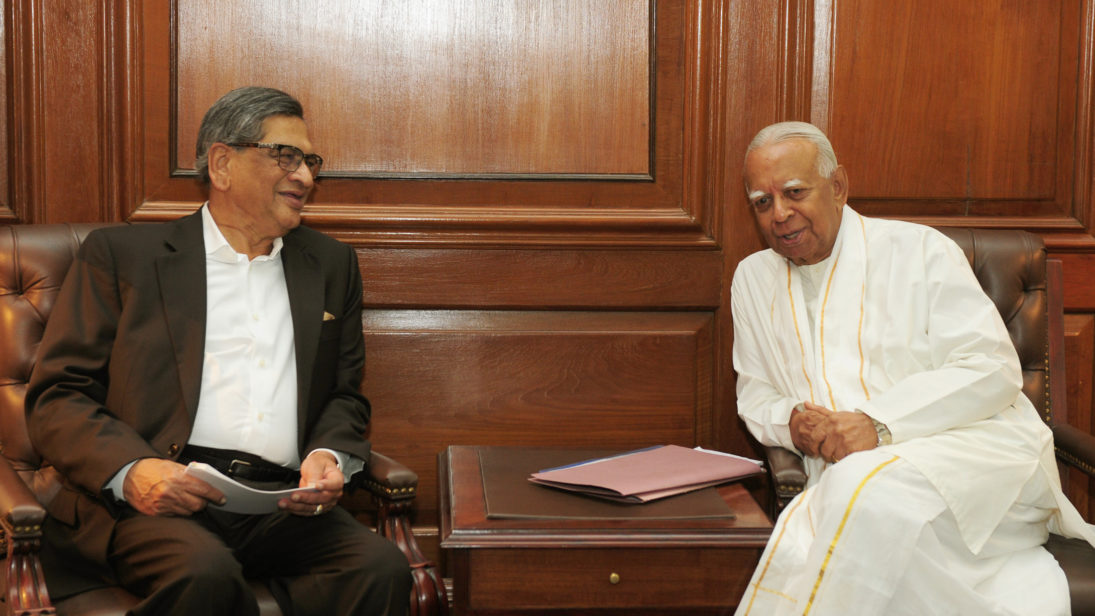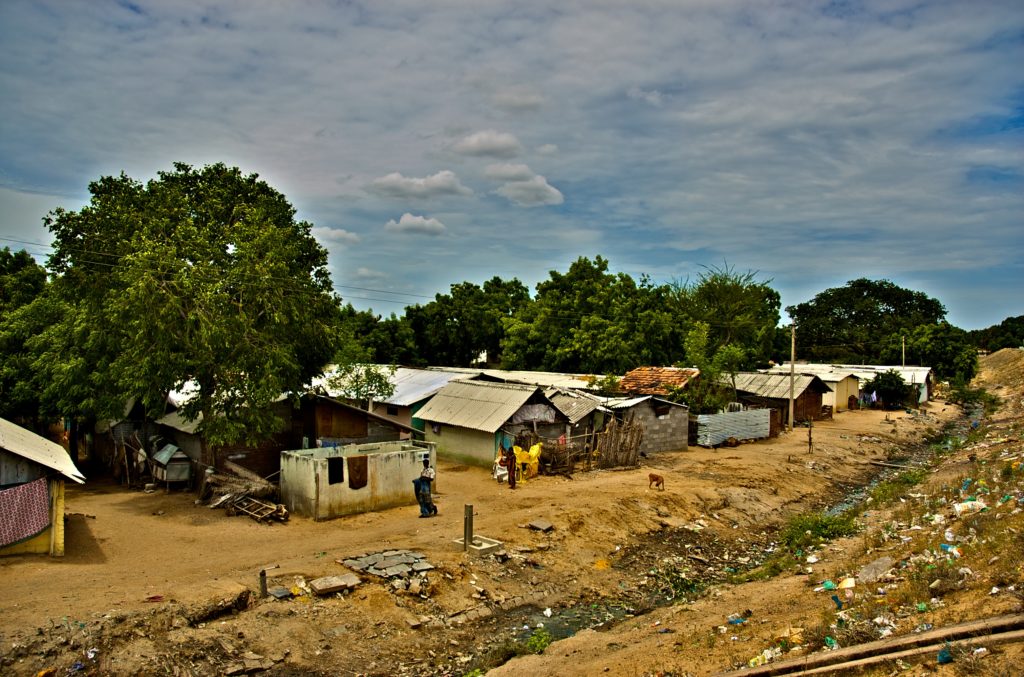
Bilateral relations between Sri Lanka and India can be traced back centuries with the Mahavamsa and Deepavamsa chronicles detailing Prince Vijaya’s arrival in Sri Lanka after banishment from India, invasions by South Indian kingdoms, and the arrival of Buddhism in Sri Lanka. India is Sri Lanka’s closest neighbor, separated by only fifty-five kilometers of water across the Palk Strait. The geographical nearness and cultural affinity between the two states have dictated how the Tamil Nadu government and the central government in India interact with Sri Lanka.
Citizenship and the civil war initially highlighted tensions in the India-Sri Lanka relationship and how Tamil Nadu has dictated bilateral ties. Increasingly, disagreements on post-war reconciliation and maritime borders have compounded tensions. As narratives during the Tamil Nadu elections have revolved around continued ethnic tensions with the Tamil minority in Sri Lanka, the Indian government has been pressured to abstain on resolutions concerning Sri Lanka at the UN Human Rights sessions, sidestep the fisheries issue in the Palk Strait, and back a separate state for the Tamil community. Geographical and cultural proximity, rather than facilitate stronger ties, has made the relationship between India and Sri Lanka more tumultuous, especially at the subnational level.
Historical Complications
Even though geographic and political boundaries separate Sri Lanka and the South Indian state of Tamil Nadu, the communities on either side of the waterway are bound by common ethnicity and shared experiences with British colonization. Tamils from southern India began settling in Sri Lanka, integrating into Sinhalese society and eventually forming their own kingdom in the north of the island. In the 19th and 20th centuries, British colonial authorities in Sri Lanka recruited many Indian Tamils to work in tea, coffee, and rubber plantations. At independence, over 700,000 Indian Tamils resided in Sri Lanka. In October 1964, Prime Ministers Sirimavo Bandaranaike of Sri Lanka and Lal Bahadur Shastri of India signed the Sirima-Shastri Pact to repatriate a percentage of Indian Tamils and give them citizenship in India. After a lengthy process, Sri Lanka gave citizenship to the remainder of the Indian Tamil population through the Grant of Citizenship to Persons of Indian Origin Act No.35 of 2003.
Geographical and cultural proximity, rather than facilitate stronger ties, has made the relationship between India and Sri Lanka more tumultuous, especially at the subnational level.
In the decades after independence, ethnic tensions and a subsequent conflict in Sri Lanka further challenged Indo-Lanka relations. India funded and maintained training camps for the Sri Lankan Tamil separatist group, the Liberation Tigers of Tamil Eelam (LTTE), which fought with the Sri Lankan government during the conflict between 1983 to 2009. Both countries signed the Indo-Lanka Accord in 1987, which prompted the intervention of India’s Peacekeeping Forces (IPKF) to assist the Sri Lankan government’s fight against the LTTE and commenced India’s push for the devolution of powers in Sri Lanka through the thirteenth amendment. Unfortunately, this presaged LTTE’s assassination of Indian Prime Minister Rajiv Gandhi. India’s and Sri Lanka’s past relationship—where sub-state ethnic and political dynamics undercut bilateral ties—informs their present one, particularly concerning the legacies of the conflict and transitional justice.
Politics of Post-Conflict Reconciliation
After the end of the separatist conflict in Sri Lanka in 2009, the Tamil Nadu State government and politicians championed the reconciliation process and development drive, forcing India to choose between allying with the Sri Lankan government and assisting their Sri Lankan Tamil brethren. Although Tamil Nadu had detached itself from Sri Lankan politics in the decades following the assassination of Rajiv Gandhi by the LTTE, the state’s interest in its neighbor redoubled in 2009. Following significant domestic pressure from Tamil Nadu, the Indian government established a Consulate General in the northern province of Jaffna and committed to constructing 50,000 houses in the north and eastern provinces of Sri Lanka in 2010. However, Tamil Nadu continues to raise its own concerns on a range of issues. Tamil Nadu government officials and politicians have continued to advocate for the rights of the Sri Lankan Tamil community, including granting them self-governance through the devolution of powers and conferring citizenship to Tamil refugees. These issues have proved that it is difficult for the coalition government in New Delhi to detach itself from Tamil Nadu’s interests, souring bilateral ties between the neighboring countries. Moreover, the Indian government has abstained from voting on resolutions concerning transitional justice after the conflict at the UN Human Rights sessions, further indicating tensions at the subnational level.

Granting citizenship for Sri Lankan refugees in India has also highlighted the difficulties that Tamil Nadu’s advocacy on behalf of Sri Lankan Tamils poses for the India-Sri Lanka bilateral relationship. Many Tamils from Sri Lanka’s Northern and Eastern provinces sought refuge in India during the conflict, resulting in over 1,000 families residing today in four major refugee camps in Tamil Nadu: Vedar Colony in Mettupalayam, Pooluvapatti near Alandurai, Aliyar, and Kottur near Pollachi. These families have been at these camps for many years seeking Indian citizenship. However, the Sri Lankan government has sought the repatriation of some of the refugees due to their involvement in the LTTE. Conversely, the Tamil Nadu leadership has been pushing the Indian central government to grant citizenship to Sri Lankan refugees by meeting the Prime Minister on several occasions, posing a thorn for bilateral relations. Similar to the debates on the repatriation of Indian Tamils immediately after independence for the two countries, this has also become a point of contention at the subnational level, as India contends with the dichotomy of assisting the Sri Lankan government while safeguarding human rights.
Maritime Boundary Disagreements
Tamil Nadu has also pressured the Indian central government to take a hardline approach against perceived abuse by Sri Lankan authorities against Indian fishermen, exacerbating existing tensions on the bilateral level. Despite the signage of the Indo-Lanka Maritime Boundary Agreement in 1974, South Indian fishermen continue to trespass the maritime border into Sri Lanka, producing fatal altercations with the Sri Lankan navy. Even though there is an India-Sri Lanka Joint Working Group on Fisheries and other constructive discussions at the national level, former Tamil Nadu Chief Minister Edappadi K. Palaniswami has urged Indian Prime Minister Modi to inquire about incidents in this area through the Indian High Commission in Sri Lanka.
Tamil Nadu’s advocacy for Tamils in Sri Lanka and their own citizens has placed India at odds with Sri Lanka, revealing that shared cultural and ethnic ties between the two countries have driven them further apart.
South Indian fishermen continue to practice Illegal, Unreported, and Unregulated (IUU) fishing methods in Sri Lankan waters without punishment from the Tamil Nadu government to curtail it or encourage alternative livelihood mechanisms or practices. South Indian fisher-folk accessed fisheries resources in Sri Lankan waters for at least three decades as Sri Lanka did not strictly enforce the International Maritime Boundary Line (IMBL) due to its preoccupation with eradicating terrorism from its borders during the war. Since 2009, the Sri Lankan Navy’s enforcement of maritime borders has led to an awkward situation for the governments of India and Sri Lanka, which are unable to move forward in addressing the fisheries issue. As Tamil Nadu does not recognize their fishermen are engaged in illegal activity, the lack of a clear solution between India and Sri Lanka that reconciles with the independent state influence of Tamil Nadu will be an issue in the years to come.
Conclusion
Even though relations between the two countries have the potential to improve, issues such as the maritime boundary disagreements will only be resolved when Tamil Nadu takes decisive action against fishermen that transgress the border and disengage from IUU fishing. Sri Lanka will continue to seek economic assistance from India, as it is severely affected by the COVID-19 pandemic and political support at international forums on human rights. Discussions on Sri Lanka’s post-conflict reconciliation efforts and maritime boundary-related issues will continue since bilateral relations between India and Sri Lanka continue to be shaped by Tamil Nadu’s influence. Tamil Nadu’s advocacy for Tamils in Sri Lanka and their own citizens has placed India at odds with Sri Lanka, revealing that shared cultural and ethnic ties between the two countries have driven them further apart.
Editor’s Note: This article is part of a joint-series run with 9DashLine exploring the role of subnational diplomacy in South Asia.
***
Image 1: Ministry of External Affairs, India via Flickr
Image 2: EU Civil Protection and Humanitarian Aid via Flickr


